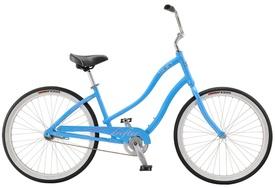Limiting carbs/fats?

krknobbe10
Posts: 110 Member
Does anyone limit their intake of carbs or fats or sugar or salt? Why do you limit then if you do? Should you limit any? Goal is to get rid of fat and replace with muscle.
0
Replies
-
You have to create a calorie deficit to lose weight so you don't need to eliminate fat or carbs but reducing them as part of an overall diet is required. Losing fat and gaining muscle is really hard to do at the same time. How are you planning on going about gaining muscle?0
-
Does anyone limit their intake of carbs or fats - only as regards my calorie goal that day. Fat goal is a minimum goal, don't have a particular carb goal unless I'm cycling 3+ hours then it's 60g an hour.
Or sugar - I don't track it, irrelevant to me. Subset of carbs anyway.
Or salt - I don't have any issues with salt/sodium consumption
Goal is to get rid of fat and replace with muscle - train hard, get adequate protein, eat appropriate number of calories, get enough rest, be patient. Don't over think it.
0 -
No...
Dietary fat doesn't make you fat
Carbs aren't the devil...carbs don't make you fat
Consuming a level of energy (calories) that is in excess of what you need to maintain makes you fat. I just watch my calories...I don't worry about my macros too much save for that I'm aware of them I eat a balanced diet and make sure I'm taking in around 0.8 - 1 gram of protein per Lb of LBM.
Also, I don't really micro-manage my diet...my consumption largely consists of whole foods and meals prepared from such so salt and sugar aren't much of a concern for me.
As the previous poster stated, don't over think it...the equation is very simple...people can't seem to wrap their heads around how simple it is and seem to have this need to overcomplicate what is not at all complicated.0 -
If you're doing low carb, you have to replace the carbs with fat. That's what I do. I eat low carb, high fat and moderate protein.0
-
I feel sluggish and gross when I eat carbs so I follow a low carb diet. listen to your body.0
-
Wheelhouse15 wrote: »You have to create a calorie deficit to lose weight so you don't need to eliminate fat or carbs but reducing them as part of an overall diet is required. Losing fat and gaining muscle is really hard to do at the same time. How are you planning on going about gaining muscle?
I plan on lifting heavy and maybe splitting up my workouts so I lift 4 days a week. I'm going to up my calories and cut back on the cardio. I'm working out with a trainer as of now so he will have help in my diet and numbers as well as my workouts.
0 -
krknobbe10 wrote: »Wheelhouse15 wrote: »You have to create a calorie deficit to lose weight so you don't need to eliminate fat or carbs but reducing them as part of an overall diet is required. Losing fat and gaining muscle is really hard to do at the same time. How are you planning on going about gaining muscle?
I plan on lifting heavy and maybe splitting up my workouts so I lift 4 days a week. I'm going to up my calories and cut back on the cardio. I'm working out with a trainer as of now so he will have help in my diet and numbers as well as my workouts.
Sounds like a good plan. As mentioned above, don't over think the diet. Just get to a deficit and work hard.0 -
Well, I'm trying to lose weight so I pretty much limit everything.

I love fat, so I have to keep an eye on it to make sure I don't go way over on calories.
I try to limit bread and pasta and other overly processed grains and added sugars whether I'm losing weight or not.
I prepare most of our meals and don't like a lot of salt, so I don't pay much attention to sodium.
I don't obsess over macros, I just try to eat a varied and balanced diet.0 -
I am diabetic so I limit my carbs, but do not track sugars as a separate entity. I try to keep my sodium under the 2300 mg. because of the diabetes and water retention issues. I also track fiber and make a point of getting over 30 g daily (Dad died of colon cancer so I am doing what I can to minimize the risk).
I do not eat low carb. My carbs are 160 g daily which is 35% of my total. This is under the recommended 40-65% but is within the guidelines my doctor has given me.0 -
An eating plan that helps you achieve and maintain a healthy weight is one that focuses on getting plenty of nutrients within your calorie needs is essential. This requires eating foods that provide the right mix of nutrients within the calorie range that will enable you to achieve your ideal weight.
Sugar is a carbohydrate found naturally in a host of different foods from lactose in milk to the fructose in fruit and honey. In fact, we need some sugar in our diets to supply ready energy to fuel our muscles and keep our brains active. The problem is that many processed foods have added sugar which supplies energy in the form of calories - and very little else. This means our body has to draw on the nutrients from the rest of our diet to process it and this can affect our health, including our immunity - leaving us more prone to bugs and colds. A high intake of sugar causes our blood sugar levels to shoot up, giving us that feel-good 'high' followed by a crashing slump which leaves us tired, irritable and craving more sugary foods. It's a vicious cycle that may be contributing to our weight problems as well as health concerns like diabetes and heart disease.
Fat tends to be considered “bad” because it is associated with weight gain and high cholesterol. However, certain types of fat give protective benefits to the heart if appropriate portions are consumed. The key is to understand how to choose the right amount of each type of fat.
It is best to avoid Trans fatty fats. Trans fat will raise levels of “bad” LDL cholesterol and decrease levels of “good” HDL cholesterol. Even if a food is advertised as “trans fat free,” it can still contain small amounts of trans fat. Therefore, avoid foods that list partially hydrogenated oils as ingredients.
Taking in too much saturated fat is linked with raising levels of “bad” LDL cholesterol in the blood and increasing internal inflammation. If you have elevated LDL cholesterol levels, it is recommended to reduce saturated fat intake to no more than 7% of total calories.
When used in place of saturated fat, monounsaturated and polyunsaturated fats help lower cholesterol levels. Omega-3 fats are a type of polyunsaturated fat that have heart protective benefits and are associated with lowering inflammation in the body. Cold-water fish, such as salmon, tuna, herring, and anchovies, contain omega-3 fats. Plant-based sources of omega-3 fats include flaxseeds, chia seeds, and walnuts.
Too much salt can impact your heart. Too much sodium in your system causes your body to retain (hold onto) water. This puts an extra burden on your heart and blood vessels. In some people, this may lead to or raise high blood pressure. Having less sodium in your diet may help you lower or avoid high blood pressure. People with high blood pressure are more likely to develop heart disease or have a stroke. People only need 200 mg of sodium per day. The American Heart Association recommends that people limit the amount of sodium in their diet to less than 1,500 mg a day.0 -
krknobbe10 wrote: »Wheelhouse15 wrote: »I'm working out with a trainer as of now so he will have help in my diet and numbers as well as my workouts.
Check your trainer actually has qualifications or specific knowledge of nutrition or you will be doing the equivalent of asking a dietician to create a weight lifting routine for you!0 -
If you stay within the macros for me its "low carb". Trick being to get the most nutrition from the calories you eat, to keep you fueled and to recover from workouts. I limit sodium (I don't add it to food) but it is in the chili beans I eat, and in meats and eggs naturally, you need it to survive, and to replace what you sweat out. It bloats me and retains water.
I lose fat faster by being careful where and what gives me carbs. It is very hard for me to work on building muscle while trying to lose fat, plus it doesn't reflect on the scale (unmotivating) for me. When I do exercise (cycling, lightly) I eat back at least 80% of calories otherwise I get tired.0
This discussion has been closed.
Categories
- All Categories
- 1.4M Health, Wellness and Goals
- 398.1K Introduce Yourself
- 44.7K Getting Started
- 261K Health and Weight Loss
- 176.4K Food and Nutrition
- 47.7K Recipes
- 233K Fitness and Exercise
- 462 Sleep, Mindfulness and Overall Wellness
- 6.5K Goal: Maintaining Weight
- 8.7K Goal: Gaining Weight and Body Building
- 153.5K Motivation and Support
- 8.4K Challenges
- 1.4K Debate Club
- 96.5K Chit-Chat
- 2.6K Fun and Games
- 4.8K MyFitnessPal Information
- 12 News and Announcements
- 21 MyFitnessPal Academy
- 1.5K Feature Suggestions and Ideas
- 3.2K MyFitnessPal Tech Support Questions








